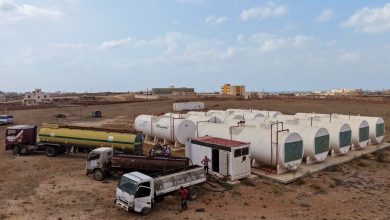Algiers – The National Human Rights Council (NHRC) praised, in a statement released on Friday, the progress made by Algeria in “strengthening water security,” noting that the achievements in this field could allow the country to “place its first decisive steps towards becoming one of the advanced nations.”
On the occasion of World Water Day, celebrated tomorrow, Saturday, the NHRC commended the “national efforts dedicated to establishing sustainable development pathways, particularly the advancements achieved in this area under the national program aimed at building seawater desalination plants to enhance water security.” It considered the projects recently inaugurated by President Abdelmadjid Tebboune as “giant leaps” toward eradicating water scarcity and enabling Algeria to take pride in “placing its first decisive steps on the threshold of advanced countries.”
From its practical perspective, the NHRC — as stated in the statement — raises its message “to promote the practical implementation of the human right to access water and sanitation services, based on a human rights-centered approach,” striving to push for the achievement of Sustainable Development Goal 6 (SDG 6).
The council also took this opportunity to address a message to relevant institutions and various stakeholders concerned with water security and ensuring the right to water. It urged them to take into account all principles set by the United Nations in this field, as well as the national legislative framework governing water resource management and public policies adopted by the state to fulfill its commitments regarding ensuring water access for all.
Additionally, the council proposed a set of recommendations it considers strategic options and preventive measures aimed at preserving this vital resource, which is among Algeria’s top priorities for achieving water security and complements its food security goals.
Among these proposals, the council recommended enhancing attention to scientific research on climate and water issues, conducting studies, and developing alternative plans to help preserve available water levels while using modern conservation devices.
The council also recommended strengthening large-scale seawater desalination projects and diversifying their uses to achieve economic and environmental goals beyond merely providing drinking water. Additionally, it suggested recycling wastewater for use, especially in industries requiring large amounts of water, the statement added.




